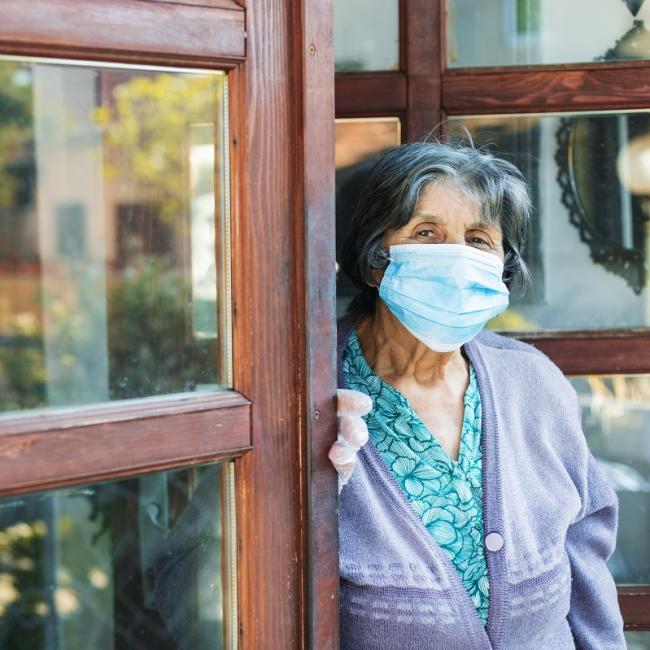Nursing home staff mental health during the Covid-19 pandemic in the Republic of Ireland
Int J Geriatr Psychiatry. 2021 Nov 2;37(1):10.1002/gps.5648. doi: 10.1002/gps.5648. Online ahead of print.
ABSTRACT
BACKGROUND: Nursing homes for older adults have been disproportionately affected by the Covid-19 pandemic with increased mortality of residents and staff distress.
OBJECTIVE: To quantify the mental health of nursing home staff during the Covid-19 pandemic in the Republic of Ireland.
DESIGN/METHODS: Cross-sectional anonymous study of Republic of Ireland nursing home staff (n = 390) during the third wave of the Covid-19 pandemic. Online survey collecting demographic information, Covid-19 exposure history and mental health measures.
RESULTS: There were significant differences between nurses, healthcare assistants (HCA) and non-clinical staff history in age, ethnicity, years' experience, history of Covid-19 infection and contact with Covid-19 positive acquaintances. Moderate-severe post-traumatic stress disorder symptoms were found in 45.1% (95% confidence interval [CI] 40.2%-50.1%) of all staff. A World Health Organisation-5 (WHO-5) wellbeing index score ≤32, indicating low mood, was reported by 38.7% (95% CI, 33.9%-43.5%) of staff; significantly more nurses reported low mood. Suicidal ideation and suicide planning were reported, respectively, by 13.8% (95% CI, 10.4%-17.3%) and 9.2% (95% CI, 6.4%-12.1%) of participants with no between-group differences. HCAs reported a significantly higher degree of moral injury than non-clinical staff. Nurses were more likely to use approach coping styles than non-clinical staff. Work ability was insufficient in 24.6% (95% CI 20.3%-28.9%) of staff.
CONCLUSION: Nursing home staff report high levels of post-traumatic stress, mood disturbance and moral injury during the Covid-19 pandemic. Differences in degree of moral injury, wellbeing and coping styles were found between staff groups, which need to be incorporated into planning supports for this neglected workforce.
PMID:34729818 | PMC:PMC8646737 | DOI:10.1002/gps.5648





